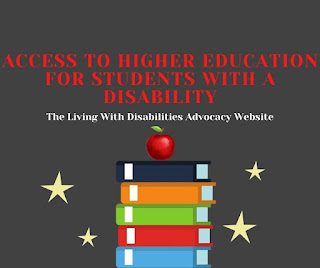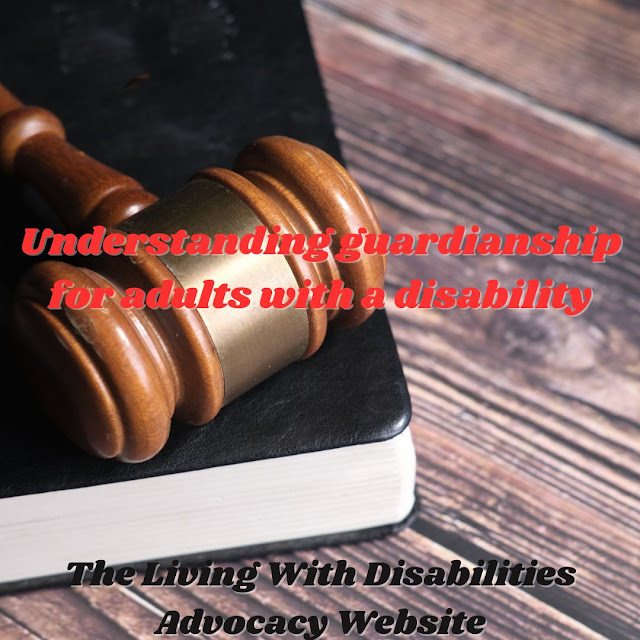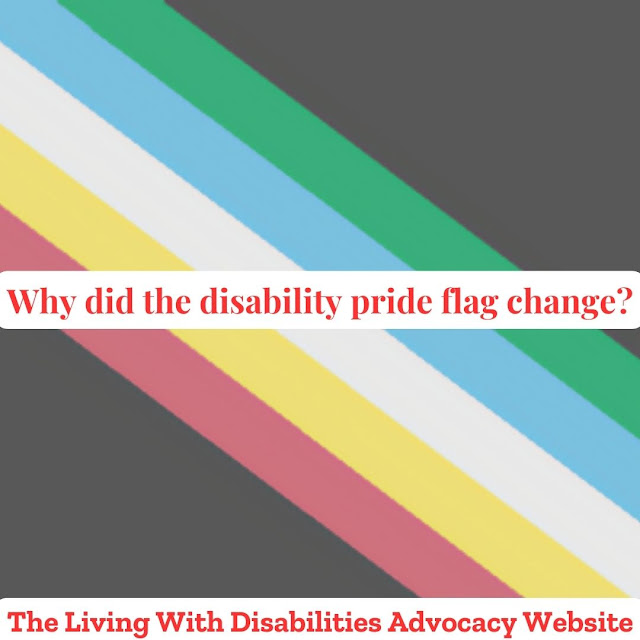Access to higher education for Students with a disability
Today Living With Disabilities wants to talk about Access to higher education for Students with a disability.
Transitioning from high school to college can become very difficult. As mentioned before, Students With Disabilities: Accommodating For Success! when it comes to graduating from high school to college, you are no longer on an Individual Educational Plan. So, things will begin to get tougher. The topic of this article is delving deeper into the transition to college.
Can people with disabilities enter college? Of course, you can enter college. Your disability does not stop you from continuing your education, and it shouldn't stop you from going.
College does not fall under the Individuals with Disabilities Educational Act (IDEA). Nevertheless, colleges do offer accommodations for students with disabilities who are eligible under the Americans with Disabilities Act (ADA). The vast majority may also provide assistance services. Like, tutoring or coaching for a fee. And like in high school, they have an IEP. They don't provide an Individual Educational Plan, they provide a 504 Plan. Thought the 504 plan carried a few things from the IEP.
What are some similarities between the IEP and 504 Plan? They both provide accommodations.
What's the difference between IEP and 504 Plan? The IEP gives specialized instructions for students from Kindergarten to twelfth grade. Meanwhile, a 504 plan can serve both students from Kindergarten to college.
you know the similarity and the difference between an IEP and a 504 plan. Let's talk about the Individuals with Disabilities Educational Act (IDEA). Before talking about how to navigate through higher education, the Individuals with Disabilities Educational Act (IDEA) is a federal law that supports special education and related service programming for children and young people with disabilities.
How can students access college on the 504 plan? Almost all colleges have a disability service office for students with disabilities.
Here are seven things to know about college disability services and how they are different from Highschool.
1. Colleges don't have the same legal liability as high school. as mentioned, college does not fall under the Individuals with Disabilities Educational Act (IDEA). Meaning the IEP and 504 Plan and the Individuals with Disabilities Educational Act (IDEA). They must follow the federal civil rights law. However, that involves sections of the 504 plan.
2. You must register as a student with a disability to receive accommodations. This is a two-step process, you will need to register at the Disability Support programs and services. Once you have registered the Records and Admission office.
3. Some colleges request evidence of a disability. You will need to show records that you have a disability.
4. There are no "File clerks", you will need a contact person at the DSPS office (Disability Support Programs and Services) This is an ongoing thing as long as you remain present at the school. The DSPS Counselor will work with you to write out your accommodations.
5. All Colleges work on different levels of getting support.
one school may be easier than the other. meaning your accommodations may change. What are some things you can find on an accommodation letter: Note-taker, Recording lecture, Computer, or laptop in the classroom and extra time taking exams. * you will be ordered to take your Mid-term and Final exams in a room without distraction.
6. Student privacy, Parents are not allowed to intervene when it comes to an issue with you and your accommodations. Parents must get permission from you and the DSPS office to partake in any issue that happens. * You are officially an adult when you are in college. So, no going to parents about an issue, adult up and handle your business.
7. No evaluation for learning and reasoning variation. Following high school, you will have to go through a private evaluation if you want updated test results. Parents are not allowed to get involved in getting a private evaluation.
The only way a parent can be involved is through making a time management system with their child.
Work cited
https://www.understood.org/articles/en/7-things-to-know-about-college-disability-services




Comments
Post a Comment